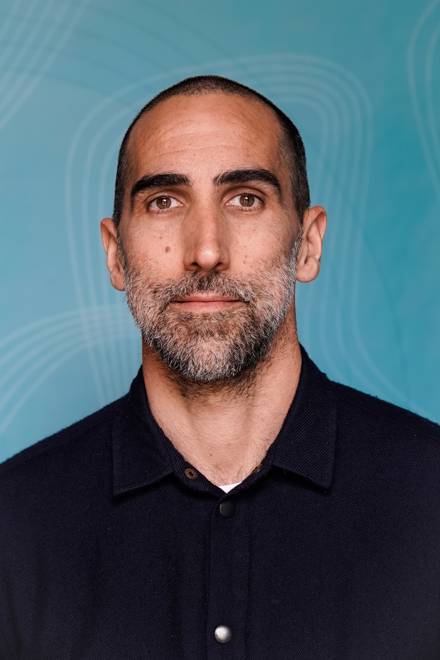My research interests lie at the intersection of cities, markets, politics, technology and development. I use quantitative and qualitative methods and interdisciplinary approaches, and have worked across Sub-Saharan Africa, South Asia and Latin America.

Kristian Hoelscher
Research Director
Email: krihoe@prio.org
Interests and experience
Kristian holds a PhD in Political Science from the University of Oslo, an MSc. in Population and Development Studies from the London School of Economics and Political Science, and a BA in Business and BSc (Hons.) in Psychology from the University of Queensland in Brisbane, Australia.
Languages spoken:
English. Norwegian. Basic Portuguese and Spanish.
Projects
All projects
Peace Positive Private Sector Development in Africa (P3A)
Political Change in African Cities (PACE)
Critical Perspectives on Digital Peacebuilding
Working Through Violence; SMEs and the SDGs in Fragile Urban Spaces
The Crime-Reducing Effect of Education: Disaggregating Education and Impact on Violent Crime (CREED)
Learning Flexibility: Complexity, Innovation & Inter-Urban Knowledge Transfer
Development Aid, Effectiveness, and Inequalities in Conflict-Affected Societies (DEAFIN)
The Social, Economic and Political Impacts of the Extractive Industries in Brazil
Brazil's Rise to the Global Stage (BraGS): Humanitarianism, Peacekeeping and the Quest for Great Powerhood
Urbanizing India (URBIN) – Urbanization, Exclusion and Climate Challenges
Latest publications
All publications
Urbanisation and the political demography of African cities
Journal article in World Development
A New Digital Divide? Coder Worldviews, the “Slop Economy,” and Democracy in the Age of AI
Journal article in Information, Communication and Society
Political Change in African Cities: Transforming State-Society Relations
Journal article in World Development
Urbanisation, democracy, and political regime transformations
Journal article in Political Geography
International Capital, National Politics and Investment in Secondary Cities in Africa: The Case of the Stalled Bagamoyo Port Project in Tanzania
Book chapter in Foreign Direct Investment and Cities: Global Case Studies for Theory and Practice
“Peace is when we are working”: Insecurity and small business survival in Kampala
Journal article in Business Horizons
Business survival strategies in a polycrisis: SME experiences from Beirut, Lebanon
Journal article in Business Horizons
Small Business Leadership, Peacebuilding, and Citizen Perceptions of Businesses as Peacebuilders: Theory and Evidence from Colombia
Journal article in Society and Business Review
SMEs, Violence and Crisis: Stylized Facts from a Survey in Latin America
Journal article in World Development
Does development aid reach politically excluded groups? A Disaggregated Study of the Location of Aid in Sub-Saharan Africa
Journal article in Development Policy Review
Latest news
All news
Doing Business During a Crisis - PRIO Research in Harvard Business Review
PRIO researchers have contributed to a survey of seven cities around the world during the Covid-19 pandemic.
Peace Positive Private Sector Development in Africa (P3A)
The P3A project will advance the understanding of how, and under what conditions, private sector development exacerbates or mitigates conflict in Africa.
Young Researcher Talent Funding for Kristian Hoelscher
Kristian Hoelscher has been granted YRT funding from the Research Council of Norway for the three-year project Political Transformation in African Cities (PACE).
The Crime-Reducing Effect of Education - Funding in Place for Project
Can governments reduce violent crime by increasing education, and if so, under what conditions?Mauricio Rivera has received FINNUT funding from the Research Council of Norway for the 4-year project The Crime-Reducing Effect of Education: Disaggregating Education and Impact on Violent Crime (CREED).
Special Issue of Conflict, Security & Development Features Business for Peace Project
The latest special issue of Conflict Security and Development is co-edited by PRIO Senior Researcher Jason Miklian, and showcases the capstone publication for the PRIO project "Conflict of Interest? 'Business For Peace' as Development Aid in Volatile Environments" funded by the Research Council of Norway.
Idea Lab Funding for Two New Projects
The Research Council of Norway's Working Cities Idea Lab [Byer som Virker idélab] was held January 11-15 2016.
What Makes a Country Dangerous to Aid Workers?
PRIO researchers write in The Guardian on the perceived dangers of humanitarian work following the Kunduz attack in Afghanistan.
New Project Funded: Development Aid, Effectiveness, and Inequalities in Conflict-Affected Societies
We are happy to announce that the Research Concil of Norway (FRIPRO) has funded a 3-year project studying whether development aid contributes to reduce intergroup health inequalities after conflict.
Succesful Doctoral Defence by Kristian Hoelscher
Kristian Hoelscher succesfully defended his PhD thesis at the Department of Political Science, University of Oslo.
Electing India's Future
In April, 800 hundred million people began casting their ballots all across India in the largest election the world has ever seen.
Latest events
All events
Reconceptualising and Responding to Urban Crises
Brazil: Where Now? Humanitarian Efforts and International Ambitions in a time of Domestic Political Changes
Armed Conflict, Maternal- and Child Health, and the Impact of Development Aid in sub-Saharan Africa
The Potential and Perils of Quantum Leaps
Sustainable Urbanisation and the African City: Challenges, Opportunities and Measuring Progress
Reframing Urban Violence in Latin-America
Urban Brazil: Recurring Challenges and Changing Perspectives
Climate and Conflict: Past Evidence and Research Gaps
A Complex Security Nexus: Water Stress, Security and Migration in South Asia
INDSEC Workshop
Latest comments
Information Technology Can Help Build Peace. This Is How.
An Urban Century: Which Direction Should Cities Take?
Is The War on Drugs a Humanitarian Crisis?
Attacks on Humanitarian Aid Workers: Five New Findings
Paris Attacks may have Consequences for European Cities
A Tale of New Cities: The Future of Urban Planning in the Developing World
An Own Goal in Brazil
Electing India's Future
In the media
PRIO Researcher Kristian Hoelscher co-authored an op-ed arguing the moral and business case for the Norwegian oil fund to divest from Elon Musk’s electric car company, Tesla. The piece ran in the Norwegian newspaper, Dagens Næringsliv.
PRIO started listing media appearances on profiles in 2023. Earlier media appearances may not be listed.





